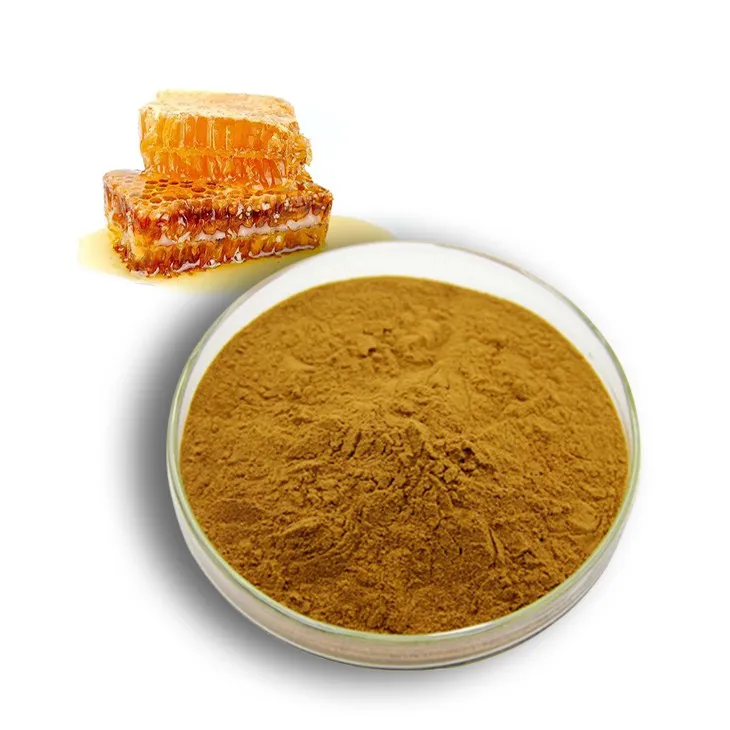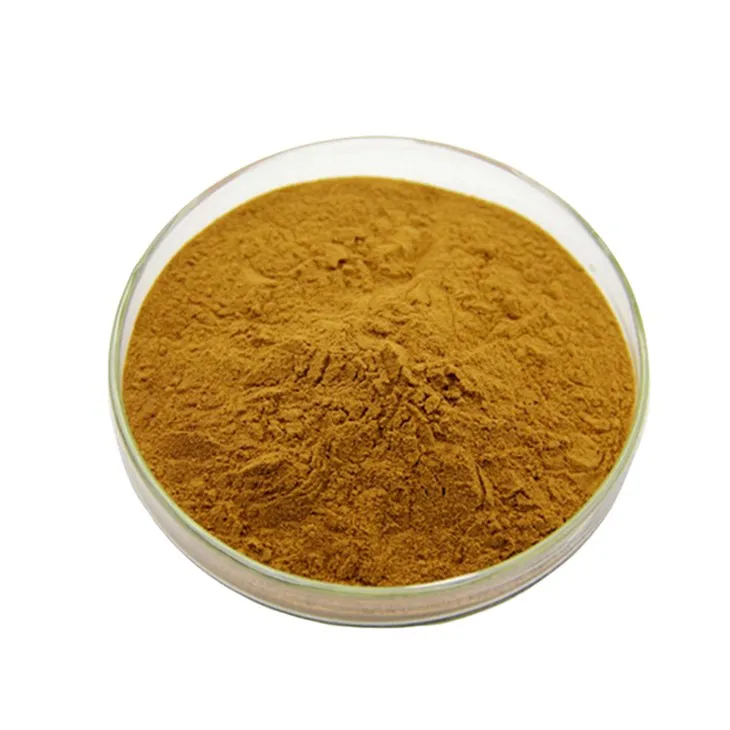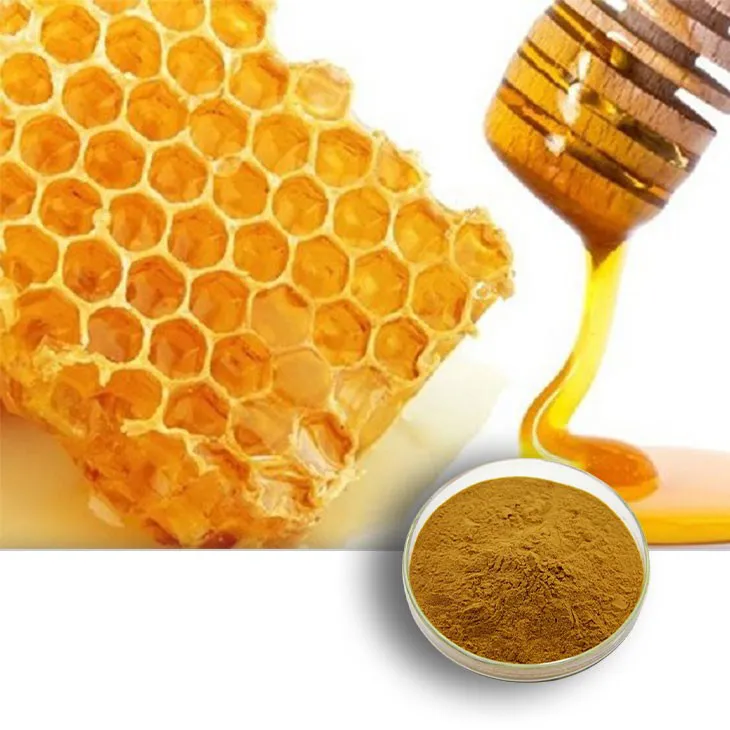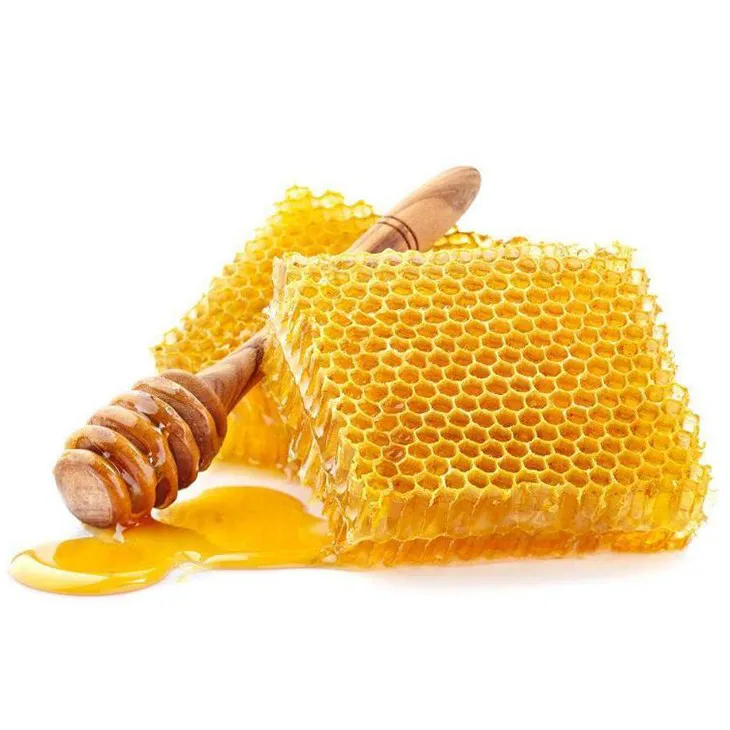- 0086-571-85302990
- sales@greenskybio.com
Read our comprehensive primer on high - quality organic propolis extract powder.
2024-12-20

1. Introduction to Propolis
Propolis is a resinous substance that bees collect from tree buds, sap flows, or other botanical sources. It is a complex mixture of various compounds, including flavonoids, phenolic acids, and esters. Bees use propolis to seal small gaps in their hives, protect against invaders such as bacteria, fungi, and viruses, and maintain the overall health of the hive.

2. The Appeal of Organic Propolis
2.1. Purity and Quality
Organic propolis is sourced from areas that are free from pesticides, herbicides, and other synthetic chemicals. This ensures that the final extract powder is pure and free from potentially harmful residues. Health - conscious individuals are increasingly seeking organic products to minimize their exposure to toxins, and organic Propolis Extract Powder fits this bill perfectly.
2.2. Environmental SustainabilityThe collection of organic propolis is often part of sustainable beekeeping practices. Beekeepers who specialize in organic propolis ensure that the bees have access to natural foraging areas, which helps maintain the ecological balance. By choosing organic Propolis Extract Powder, consumers are also supporting these sustainable practices.

3. Sustainable Collection of Organic Propolis
3.1. Bee - Friendly Environments
Organic propolis collection begins with creating a bee - friendly environment. This involves providing bees with a diverse range of natural plants to forage from. Beekeepers often plant a variety of nectar - and pollen - rich plants in the vicinity of their hives. These plants not only provide food for the bees but also contribute to the unique composition of the propolis. For example, bees that forage on certain types of coniferous trees may produce propolis with different chemical profiles compared to those that forage on broad - leafed trees.
3.2. Ethical Collection MethodsBeekeepers must use ethical collection methods to ensure the well - being of the bees. This means not over - harvesting propolis, which could disrupt the bees' natural behavior and the integrity of the hive. Typically, only a small amount of propolis is removed from each hive at a time. Additionally, modern beekeeping techniques are used to minimize stress on the bees during the collection process. For instance, specialized tools are used to gently scrape the propolis from the hive without harming the bees or their brood.

4. Advanced Extraction Techniques
4.1. Solvent - based Extraction
One common method of extracting propolis is solvent - based extraction. Ethanol is often the solvent of choice due to its ability to dissolve many of the active compounds in propolis. The propolis is first crushed or ground into a fine powder, and then mixed with ethanol. This mixture is left to macerate for a period of time, usually several days. During this time, the active compounds are dissolved into the ethanol. The resulting solution is then filtered to remove any solid particles, and the ethanol is evaporated under controlled conditions to obtain the Propolis Extract Powder. This method is effective in extracting a wide range of compounds, but care must be taken to ensure that all the ethanol is removed to avoid any potential toxicity.
4.2. Supercritical Fluid ExtractionSupercritical fluid extraction is a more advanced and cleaner technique. Carbon dioxide (CO₂) is the most commonly used supercritical fluid in this process. Under specific pressure and temperature conditions, CO₂ reaches a supercritical state, where it has properties of both a liquid and a gas. In this state, it can penetrate the propolis matrix and selectively extract the desired compounds. The advantage of this method is that it is non - toxic, leaves no solvent residues, and can produce a highly pure propolis extract powder. However, the equipment required for supercritical fluid extraction is more expensive, which can make the final product more costly.

5. Health Benefits of Organic Propolis Extract Powder
5.1. Immune System Support
The various compounds in propolis, such as flavonoids, have been shown to have immunomodulatory effects. They can help stimulate the immune system, making the body more resistant to infections. For example, propolis has been studied for its ability to enhance the activity of immune cells such as macrophages and lymphocytes. This can be particularly beneficial during the cold and flu season or for individuals with a weakened immune system.
5.2. Antioxidant PropertiesPropolis is rich in antioxidants, which play a crucial role in protecting the body against oxidative stress. Oxidative stress is caused by an imbalance between free radicals and antioxidants in the body, and it can lead to cell damage and various diseases. The antioxidants in propolis, such as phenolic acids, can neutralize free radicals, thereby reducing the risk of chronic diseases like heart disease, cancer, and neurodegenerative disorders.
5.3. Anti - Inflammatory EffectsMany of the compounds in propolis have anti - inflammatory properties. They can help reduce inflammation in the body, which is associated with a variety of health conditions, including arthritis, skin diseases, and digestive disorders. For instance, propolis has been used topically to reduce inflammation in skin rashes and internally to relieve inflammation in the gut.
5.4. Oral Health BenefitsPropolis has long been used for oral health. It has antibacterial and antifungal properties that can help combat oral infections such as gingivitis and tooth decay. It can be used in mouthwashes or dental products to promote healthy gums and teeth. Some studies have also shown that propolis can help reduce plaque formation and bad breath.
6. How to Incorporate Organic Propolis Extract Powder into Your Routine
6.1. Dietary Supplements
One of the most common ways to consume propolis extract powder is in the form of dietary supplements. These supplements are available in capsules, tablets, or powder form. When choosing a propolis supplement, it is important to look for a high - quality product that is sourced from organic propolis and uses proper extraction techniques. The recommended dosage may vary depending on the individual's health needs and the concentration of the supplement. It is advisable to consult a healthcare professional before starting any new supplement regimen.
6.2. Topical ApplicationsPropolis extract powder can also be used topically for various skin conditions. It can be mixed with a carrier oil, such as coconut oil or olive oil, to create a salve or balm. This can be applied to minor cuts, burns, rashes, or insect bites to promote healing and reduce inflammation. Additionally, propolis - based creams and lotions are available commercially for skin care, especially for those with sensitive or problem - prone skin.
6.3. In BeveragesAnother way to incorporate propolis extract powder into your routine is by adding it to beverages. A small amount of the powder can be dissolved in warm water, tea, or juice. This not only provides the health benefits of propolis but also adds a unique flavor. However, it is important to note that propolis has a strong taste, so it may take some getting used to.
7. Conclusion
High - quality organic propolis extract powder is a remarkable natural product with a wide range of health benefits. From its sustainable collection to advanced extraction techniques, every aspect of its production contributes to its purity and effectiveness. As more people become health - conscious, the popularity of organic propolis extract powder is likely to continue to grow. Whether it is used for immune support, antioxidant protection, or for various other health purposes, it offers a natural and potentially powerful addition to one's wellness routine.
FAQ:
What is organic propolis extract powder?
Organic propolis extract powder is a product derived from propolis. Propolis is a resinous substance that bees collect from tree buds, sap flows, etc. Through special extraction techniques, the useful components are concentrated into a powder form, especially when it is organically sourced, which means it comes from bees that have collected from organic plants.
How is organic propolis sustainably collected?
For sustainable collection of organic propolis, beekeepers ensure that they manage the bee colonies in an environmentally friendly way. They place hives in areas with abundant natural sources of propolis like organic forests or plantations. The collection is done in a way that doesn't harm the bees or their natural foraging patterns. Also, strict regulations are followed to ensure that the propolis source plants are grown without harmful pesticides or chemicals.
What are the advanced extraction techniques for propolis?
Some advanced extraction techniques include supercritical fluid extraction. This method uses a fluid (such as carbon dioxide) under high - pressure and - temperature conditions to extract the active compounds from propolis without leaving behind harmful residues. Another technique is solvent - based extraction, where carefully selected solvents are used to dissolve the propolis components and then the solvent is removed to obtain the pure extract powder. These techniques are designed to preserve the beneficial properties of propolis while getting rid of impurities.
Why is it popular among health - conscious individuals?
It is popular among health - conscious individuals because it has numerous potential health benefits. Propolis contains antioxidants, flavonoids, and other bioactive compounds. These can help in enhancing the immune system, fighting against inflammation, and may have antibacterial and antiviral properties. It may also contribute to better oral health, skin health, and overall well - being.
Can it really combat various ailments?
While research is still ongoing, there is evidence to suggest that propolis extract powder may have the potential to combat various ailments. For example, its antibacterial properties may help in treating minor infections. The anti - inflammatory effects may be beneficial for conditions related to inflammation such as arthritis. However, it should not be considered a substitute for medical treatment, but rather a complementary approach to maintaining health.
Related literature
- The Benefits of Organic Propolis Extract: A Review"
- "Propolis: From Beehive to Health - Promoting Extract"
- "Advanced Extraction Technologies for Propolis and Their Impact on Quality"
- ▶ Hesperidin
- ▶ Citrus Bioflavonoids
- ▶ Plant Extract
- ▶ lycopene
- ▶ Diosmin
- ▶ Grape seed extract
- ▶ Sea buckthorn Juice Powder
- ▶ Fruit Juice Powder
- ▶ Hops Extract
- ▶ Artichoke Extract
- ▶ Mushroom extract
- ▶ Astaxanthin
- ▶ Green Tea Extract
- ▶ Curcumin
- ▶ Horse Chestnut Extract
- ▶ Other Product
- ▶ Boswellia Serrata Extract
- ▶ Resveratrol
- ▶ Marigold Extract
- ▶ Grape Leaf Extract
- ▶ New Product
- ▶ Aminolevulinic acid
- ▶ Cranberry Extract
- ▶ Red Yeast Rice
- ▶ Red Wine Extract
-
Fenugreek Extract Powder
2024-12-20
-
Pueraria Lobata Extract
2024-12-20
-
Stevia Extract
2024-12-20
-
Ivy Extract
2024-12-20
-
Nettle Root Extract
2024-12-20
-
Buckthorn bark extract
2024-12-20
-
Black Garlic Extract
2024-12-20
-
Artichoke Extract
2024-12-20
-
Maca Extract
2024-12-20
-
Alfalfa Meal
2024-12-20





















